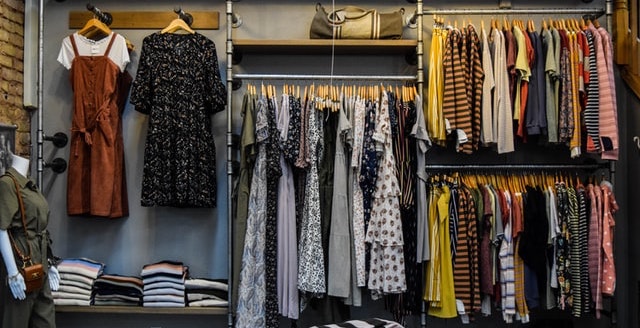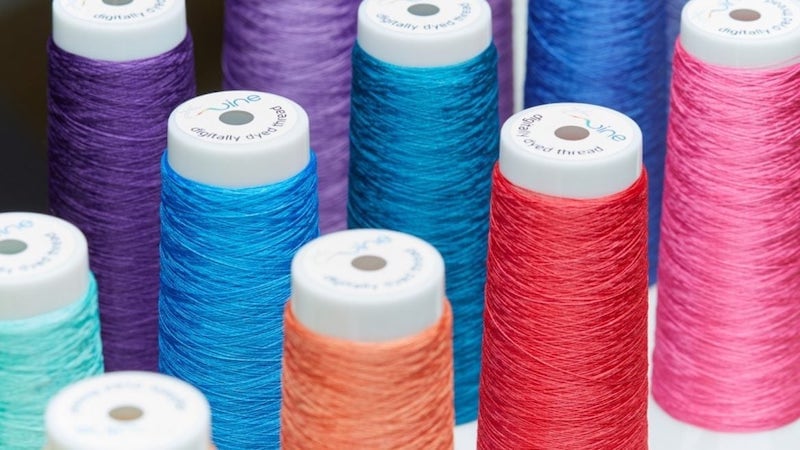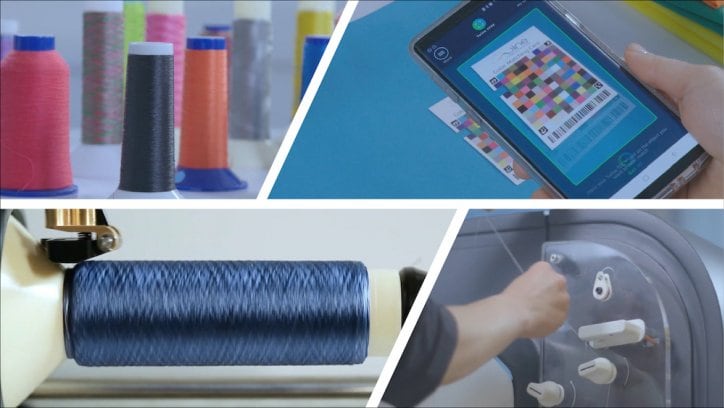Author: Forogh Shirzad – Kohan Textile Journal
Israel is a country in West Asia, located on the southeast coast of the Mediterranean Sea and the north coast of the Red Sea.
The Israeli economy is a technology-based economy and one of the strongest in the region. The European Union is Israel’s largest trading partner.
Israel has the second-largest number of startup companies in the world after the United States. Keeping up with new technologies, a strong economy, and extensive business connections have influenced the formation of an up-to-date and advanced textile industry in Israel .
Israel’s status as a global centre of high-tech innovation benefits Israeli fashion and textile companies. They sometimes develop their own new solutions to meet a specific design or tackle a long-standing industry difficulty.
Background
The current position of the Israeli textile industry is rooted in many years of effort and development. Like other developing countries, Israel pushed the textile and garment industry as a reliable source of employment in the mid-1950s. By 1985, the textile and garment sector had grown to 1,523 businesses.
Israeli manufacturer Nilit launches sustainable premium nylon fibre
These enterprises employed around 46,000 people (representing 15% of all industrial workers) and generated around US$13 million in revenue or 8.8% of total industrial earnings. Israel continues to push this industry in 1988 as a source of employment for unskilled and semiskilled immigrants and local Israeli Arab workers.
Many small businesses and a few major, vertically integrated corporations typified the textile and garment industries (including Polgat Enterprises, considered one of the most efficient producers in the world). The textile and garment business, like other Israeli sectors, relied on exports to Europe and the United States to stay afloat.
Given the generally high tariff barriers on textile products in Europe and the United States, Israel’s 1977 agreement with the European Economic Community (EEC), the Israel-EE Preferential Agreement, and the United States-Israel Free Trade Area Agreement (as of 1987), have reduced and will continue to reduce these tariffs, making Israeli textile and apparel products marginally competitive.
Israel has overcome the challenges of a limited domestic customer base, distant export markets, and high expenses to establish a substantial textile and garment industry. Much of the credit for this goes to the industry, which has adopted high-tech manufacturing methods to manufacture high-quality, cost-competitive items, made strategic acquisitions in foreign companies.
Israel’s industry also focused on specialized markets where medium-sized and small businesses can be prominent participants. Part of the credit is related to the Middle East peace process, which has allowed businesses to relocate production to lower-cost countries in the region, as well as Israel’s free-trade agreements with the United States and the European Union, two of the world’s largest garment markets.
Key Segments
Trendy fabrics, wrinkle-resistant fabrics, and high-performance clothes made of the latest breathable textiles are all becoming Israel’s fashion identity. Israeli businesses are acquiring a reputation as early adopters of these cutting-edge technologies, which are already finding their way into American and European markets. Israel is known for producing high-quality woven and knitted fabrics all over the world.
Israel, a world-renowned high-tech developer, applies its know-how to the fast-paced world of fashion and textiles. As a result, the label “Made in Israel” has come to represent design innovation and ingenuity, as well as technological advancements. With some high-quality textile products, such as its leather goods and Gottex swimwear, Israel led the fashion pace in the late 1960s, establishing Israel’s internationally acclaimed reputation. Today, Israeli manufacturers of intimate garments, swimwear, fashion clothing, home textiles, and high-performance threads are among the world’s best.
Israeli swimwear is one of the country’s earliest worldwide fashion exports. The majority of Israeli swimwear is sold in luxury department stores throughout the United States and Europe. In recent years, the Israeli knitting industry, which encompasses intimate apparel and outerwear, has risen to prominence. Besides, home textiles are quickly becoming a significant and rapidly growing industry.
Made in Israel products are noted for their eye-catching designs, which are accomplished through innovative printing, dyeing, and processing procedures to produce woven fabrics of extremely high quality. Israeli companies are frequently asked to exhibit at prominent trade exhibitions in Europe and America.
Innovative profession
As mentioned earlier, innovation plays a pivotal role in Israel’s businesses, including the textile and fashion sector. Some local variables promote innovation in Israeli companies, such as Government support for R&D through the Israel Innovation Authority (previously Office of Chief Scientist) and the Israeli Ministry of Defence. In addition, Israel’s local ecosystem contributes to innovation. For instance, Israel’s start-up ecosystem is on the lookout for new application and implementation domains, occasionally found in textiles. Moreover, advanced scientific effort in the fields of medical sciences, material sciences, and Nanotechnology sometimes overlaps with textiles.
As a result, several high-tech products are producing by cutting-edge technologies in Israel. Tortech Nano-Fibers, for example, is an Israeli R&D startup firm founded in 2010. Tortech’s technology is based on a patented, innovative technique developed at Cambridge University. The process allows for the creation of non-woven mats and fibers constructed of Ultra-Long Carbon Nanotubes (ULCNTs) that may be handled and utilized without the usage of binders.
Israel-based dyeing system maker Twine Solutions raises $28 million
Twine is another example of Israel’s innovative companies offering digital thread and yarn dyeing systems. This system enables customers to dye their own thread and yarn, immediately ready for sewing, knitting, and embroidery in a sustainable and cost-effective manner.
SP Nano is another company that can be included in the list of Israeli high-tech companies. SP Nano is a nanotechnology company that commercializes the use of nanoparticles in composite materials components and products. The patented SP Nanotechnology, which includes its unique SP1/protein, uses genetically engineered proteins to generate self-assembly nanostructures with Carbon NanoTubes (CNTs) attached to structural fabrics like carbon fiber, aramid, and glass fiber composites.
All in all, Israel has considerable potential for growth in the fashion and textile industry. Its manufacturers are experiencing an increasing presence on the world market. The establishment of such an up-to-date and advanced textile sector in Israel has been impacted by keeping up with new technologies, a robust economy, and significant business contacts. In addition, Israeli fashion and textile companies profit from Israel’s prominence as a global center of high-tech innovation.






















